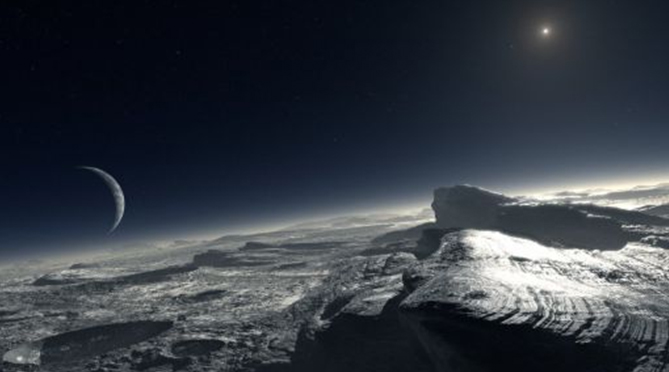Yesterday, Paul McAuley put up a list of what he thinks are the fortyeight essential science fiction titles. As per usual, I’ve bolded the ones I’ve read and struck through the ones I dislike.
Frankenstein, or The Modern Prometheus MARY SHELLEY 1818
Journey to the Centre of the Earth JULES VERNE 1863
After London RICHARD JEFFRIES 1885
The Time Machine HG WELLS 1895
The House on the Borderland WILLIAM HOPE HODGSON 1912
We YEVGENY ZAMIATIN 1924
Brave New World ALDOUS HUXLEY 1932
Star Maker OLAF STAPLEDON 1937
1984 GEORGE ORWELL 1949
I, Robot, ISAAC ASIMOV 1950
The Martian Chronicles RAY BRADBURY 1950
The Dying Earth JACK VANCE 1950
Childhood’s EndARTHUR C CLARKE 1953
The Space Merchants CM KORNBLUTH & FREDERIK POHL 1953
Tiger! Tiger! ALFRED BESTER 1956
The Death of Grass JOHN CHRISTOPHER 1956
The Seedling Stars JAMES BLISH 1957
The Midwich Cuckoos JOHN WYNDHAM 1957
Starship Troopers ROBERT A HEINLEIN 1959
A Canticle for Liebowitz WALTER M MILLER JR 1959
Solaris STANSLAW LEM 1961
Hothouse BRIAN ALDISS 1962
A Clockwork Orange ANTONY BURGESS 1962
Cat’s Cradle KURT VONNEGUT JR 1963
Martian Time-Slip PHILIP K DICK 1964
Dune FRANK HERBERT 1965
The Crystal World JG BALLARD 1966
Flowers For Algernon DANIEL KEYES 1966
Lord of Light ROGER ZELAZNY 1967
Nova SAMUEL R DELANY 1968
Pavane KEITH ROBERTS 1968
The Left Hand of Darkness URSULA K LE GUIN 1969
Roadside Picnic ARKADY AND BORIS STRUGATSKI 1969
334 THOMAS M DISCH 1972
Dying Inside ROBERT SILVERBERG 1972
The Fifth Head of Cerberus GENE WOLFE 1972
Ten Thousand Light Years From Home JAMES TIPTREE JR 1973
The Forever War JOE HALDEMAN 1974
Inverted World CHRISTOPHER PRIEST 1974
The Female Man JOANNA RUSS 1975
Arslan MJ ENGH 1976
The Ophiuchi Hotline JOHN VARLEY 1977
The Final Programme MICHAEL MOORCOCK 1968
Kindred OCTAVIA BUTLER 1979
Engine Summer JOHN CROWLEY 1979
Timescape GREGORY BENFORD 1980
Neuromancer WILLIAM GIBSON 1984
Divine Endurance GWYNETH JONES 1984
An interesting list. You can’t really argue with it, as it is after all a personal list of essential titles. It is very New Wave orientated: Roberts, Ballard, Dick, Priest, Moorcock, Delany, Le Guin, Disch undsoweiter, but with some surprises. I wouldn’t have expected to see Starship Troopers on this list based on what else is on it. On the whole, for anybody who wants to get acquainted with this particular strand of science fiction: literary, somewhat gloomy and less interested in the hard sciences than the soft sciences, this would be a good start.
In terms of McAuley’s own writing this list also makes a lot of sense. You can see the influences at work in his own novels and stories.

